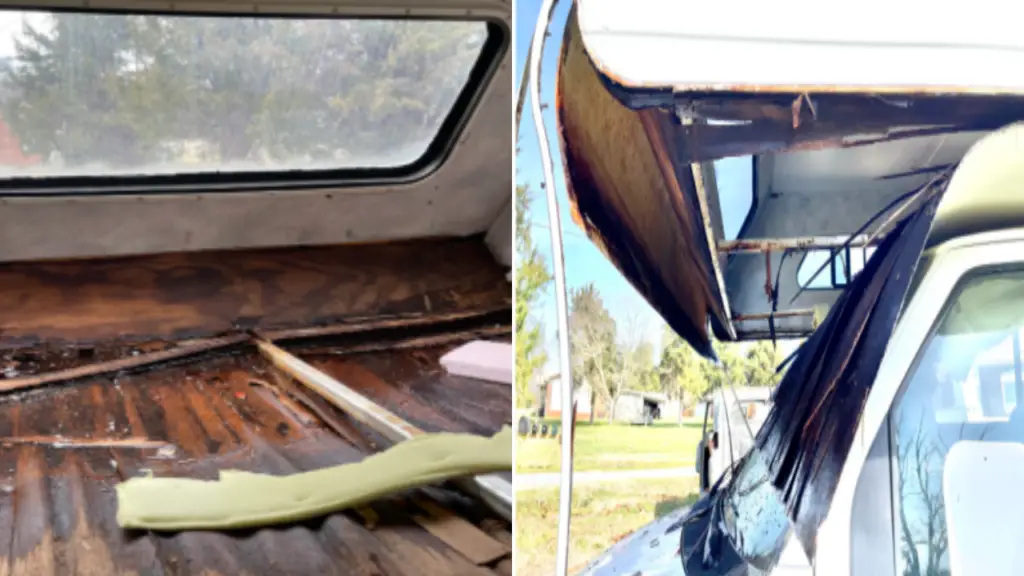12 Crucial Questions to Ask Before Buying A Used RV
Buying a used RV can be an exciting adventure, offering freedom and flexibility for travel enthusiasts.
However, it’s crucial to approach this investment with caution to avoid common pitfalls.
Here are 12 essential questions to ask and tips to consider before buying a used RV, ensuring you make an informed decision.

1. Confirm the Ownership
Start by verifying that the person selling the RV is the actual owner.
Direct communication with the owner allows you to gather accurate details about the RV’s history and maintenance.
If buying from a dealership, ensure they provide proper ownership documentation.
2. Explore Ownership and Usage History
Understanding the RV’s ownership history and how frequently it was used can offer insights into its condition.
An RV that has been regularly used and maintained is often a better choice than one that has been sitting idle.
Inquire about the number of previous owners and the frequency of use.
3. Review Maintenance Records
Maintenance records are invaluable when purchasing a used RV.
They provide a detailed history of repairs, replacements, and regular maintenance, indicating how well the RV has been cared for.
Comprehensive records suggest responsible ownership and can boost your confidence in the RV’s condition.
4. Assess Tire Condition and Mileage
Inspect the tires for wear and tear, and ask when they were last replaced.
Replacing tires, especially on larger RVs like Class A motorhomes, can be costly. Ensure the tires have sufficient tread and no signs of damage.
Check the mileage to gauge the RV’s usage and potential wear on mechanical components.
5. Check for Water Damage
Water damage is a significant concern in RVs, as it can lead to extensive and costly repairs.
Thoroughly inspect the roof, windows, and walls for signs of water damage. Press on walls to feel for soft spots, which may indicate hidden damage.
Avoid RVs with evident water damage, as the extent of the issue can be hard to determine.

6. Test All Features and Systems
Before purchasing, test all the RV’s features and systems to ensure they are functional.
This includes turning on the engine, lights, generator, water heater, and faucets.
Check the clearance and brake lights, and test the water pump. Ensure everything works as expected to avoid surprises later.
7. Evaluate Shower Comfort
The shower is an essential feature, especially for long-term travel. Stand in the shower to ensure it’s comfortable and meets your needs.
A cramped or poorly designed shower can significantly impact your travel experience.
8. Inspect the Undercarriage
Check underneath the RV for signs of damage, rust, or broken parts. The undercarriage can reveal how well the RV has been maintained.
Look for issues with the suspension, exhaust system, and any visible leaks.
9. Inquire About Pet History
If you have allergies, it’s crucial to ask if pets have lived in the RV. Pet dander can linger, affecting allergy sufferers.
Even if you don’t have allergies, knowing the pet history can help you make an informed decision.
10. Take a Test Drive
A test drive is essential to evaluate the RV’s handling and performance.
Drive on open roads and test various speeds, turns, and braking. Listen for unusual noises or rattles, which may indicate issues.
Ensure you’re comfortable driving the RV, especially if you’re new to RVing.
11. Consider a Professional Inspection
Hiring a professional to inspect the RV can provide peace of mind and uncover hidden issues.
An inspection is a worthwhile investment, typically costing less than $200, and can save you from costly repairs down the road.
12. Explore Extended Warranty Options
Depending on the RV’s age and condition, you may be able to purchase an extended warranty.
Companies like Wholesale Warranties offer extended coverage, providing additional protection against future repairs.
Consider the cost and benefits of an extended warranty for your specific situation.
Additional Questions for 2025 RV Buyers
- Technology and Connectivity: Ask about the RV’s technological features, such as built-in Wi-Fi, USB ports, and smart device integration. These features have become increasingly important for modern travelers.
- Safety Features: Inquire about safety features like backup cameras, lane departure warnings, and advanced braking systems, which are more common in newer RV models.
- Eco-Friendly Options: Consider asking about eco-friendly features, such as solar panels, energy-efficient appliances, and water-saving fixtures, which can reduce your environmental impact and save on costs.
- Floor Plan and Layout: Ensure the RV’s layout suits your needs, especially if you plan to work remotely or travel with family. Modern RVs often have more versatile and spacious floor plans.
- Compatibility with Modern Accessories: Check if the RV is compatible with modern accessories like portable power stations, advanced GPS systems, and smart home devices.
- Insulation and Climate Control: Ask about the RV’s insulation and climate control systems, especially if you plan to travel in extreme weather conditions.
Conclusion
Buying a used RV can be a rewarding experience, offering the freedom to explore new destinations with modern conveniences.
By asking the right questions and thoroughly inspecting the RV, you can make an informed decision and avoid common pitfalls.
Prioritize safety, functionality, and comfort to ensure your used RV meets your travel needs and provides a enjoyable experience on the road.